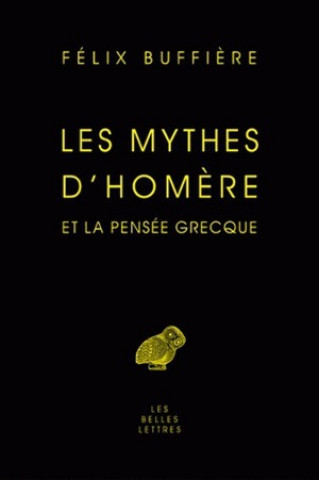
Delivery
Shopping guide





Doesn't suit? No problem! You can return within 30 days
 Gift voucher
any value
Gift voucher
any value
You won't go wrong with a gift voucher. The gift recipient can choose anything from our offer.
Les Mythes D'Homere Et La Pensee Grecque
 French
French
 237 b
237 b
 Delivery to Austria
Delivery to Austria
30-day return policy
You might also be interested in


Homer’s writings have always fascinated readers, and his influence has not waned from ancient times to our own day (Paul Claudel, Gabriel Audisio, Joyce, Cavafy, Kazantsakis). Yet some philosophers (Xenophanes, Plato, Epicurus) have been harsh critics of Homeric poetry. Xenophanes (6th century BC) reproached Homer for giving the gods an unflattering and immoral reputation. Plato, on the other hand, believed that the study of philosophy should sublimate the study of Homeric poetry, which, in the latter’s day, was the foundation of learning for Greek youths. However, ancient Greeks never ceased to analyse Homeric myths in an attempt to identify their origins. They believed that Homeric poetry and philosophy had to be reconciled in order to discover the myths’ hidden meaning, a process called “allegorical exegesis.” The latter began in the early 6th century BC with Theagenes of Rhegium and lasted until Proclus (5th century AD).For Greeks, myths are a deceptive envelope whose secret needs to be penetrated in order to grasp the idea behind the image.Homeric exegesis developed on three major levels : Physics : According to allegorists, Homer’s myths delved into scientific notions about the very structures of the universe. For example, gods were nothing other than primordial elements (air, ether, water, fire and earth) which indulged in cosmic conflicts. Morality : Myths were a reflection of virtue (Plutarch, Cassius Maximus Tyrius) and taught individuals how to conduct themselves heroically, sensibly and wisely. Theology : Neoplatonicians (Porphyry of Tyre, Proclus) believed that Homer’s gods had their respective counterparts in Neoplatonism’s gods and demons, as well as in their belief in the transmigration of souls (the adventures of Ulysses, Calypso, Circe and the Sirens). Homer’s myths revealed the real world’s structure because they were no longer deemed to be fictional, but rather pure, truths. The allegorical exegesis tradition thrived until the Byzantine era and even on up to the Renaissance.
About the book
 French
French


 Contact
Contact How to shop
How to shop































